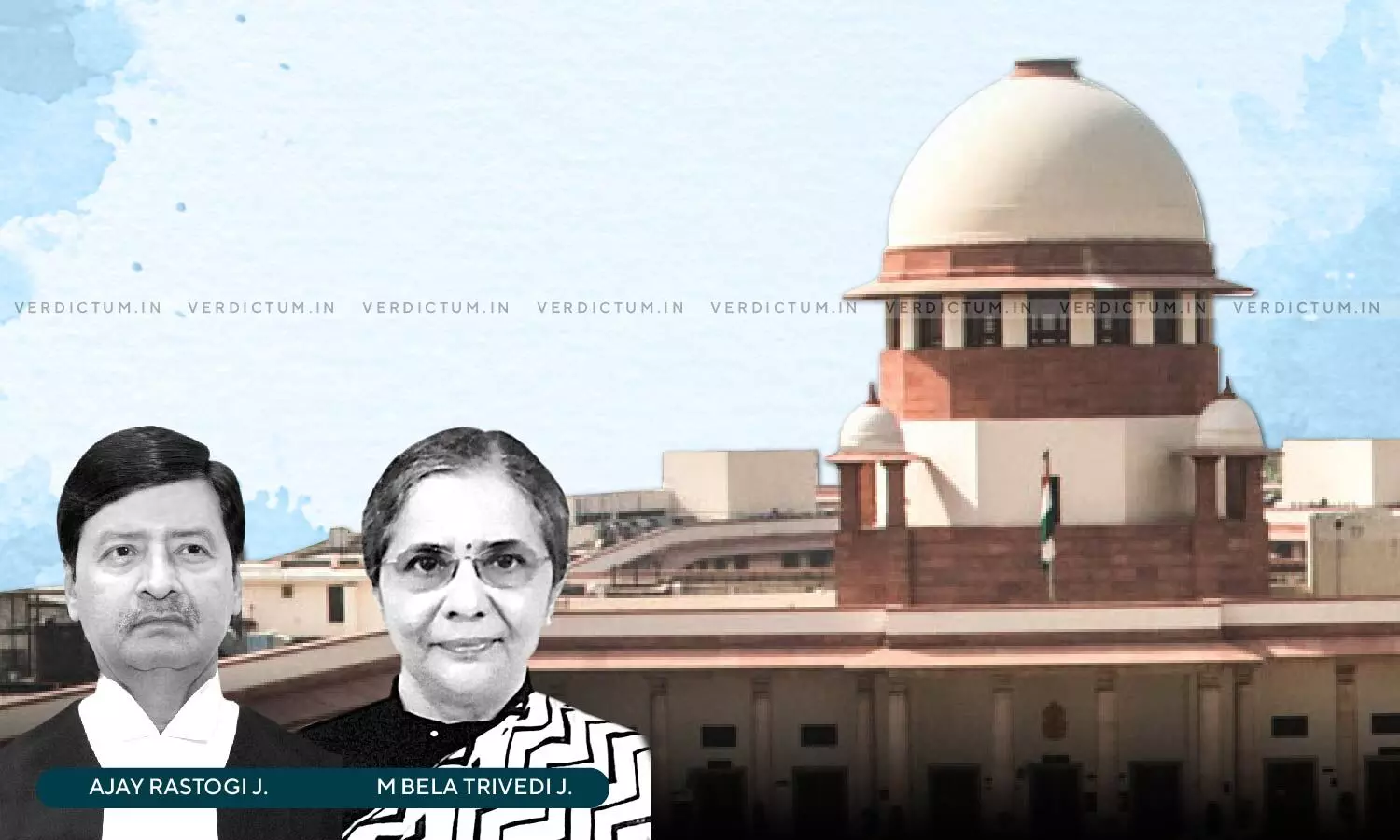
High Court Cannot Alter Or Amend A Registered Lease Deed In Exercise Of Its Jurisdiction Under Article 226: SC
 |
|The Supreme Court in an appeal has held that it is nowhere open for the High Court to alter or amend a lease deed registered under Section 17 of the Registration Act, 1908 in the exercise of its jurisdiction under Article 226 of the Constitution.
The Court provided an opportunity to a person being an original bidder for the remainder of an area on a priority basis on the prevalent circle rate notified by the Government.
The two-Judge Bench comprising Justice Ajay Rastogi and Justice Bela M. Trivedi observed, “… the fact is that the parties sitting across the table, got the lease deed executed for 18262.89 sq. meters without demur on 29th March, 2006 and the transaction stood concluded after execution of the lease deed, which was initiated pursuant to a tender floated by the appellant on 13th March, 1997 and since the lease deed was to be compulsorily registered under Section 17 of the Registration Act, 1908, it was nowhere open to be altered or amended even by the High Court in exercise of its jurisdiction under Article 226 of the Constitution.”
The Bench was deciding a case wherein an appeal was preferred against the judgment passed by the Madhya Pradesh High Court, Gwalior Bench whereby it directed the appellants to execute the lease deed in favour of the respondent of the remaining area of the land in accordance with the acceptance of his offer of a total plot area.
“… the litigation is pending for sufficiently long time and keeping in view the escalation in the value of the property in question based on commercial principles, we consider it appropriate to observe that the respondent being originally the bidder for the remainder of the land as well, let one opportunity be made available to the respondent for the remainder of the area on priority basis on the prevalent circle rate notified by the Government”, said the Court
Senior Advocate Sanjay Hegde appeared on behalf of the appellants while Advocate Varun K. Chopra appeared on behalf of the respondent.
Brief Facts -
The appellants had issued an advertisement inviting bids for the grant of leases of different plots under the transport city scheme and the offer of the respondent being the highest bid was accepted. The respondent i.e., the auction bidder was, therefore, directed to deposit an amount in addition to the earnest money in four instalments.
As per the letter of allotment, the construction work was to be completed within two years a failure of which would lead to forfeiture of the security amount. Despite the respondent failed to deposit the instalments, no action was taken by the appellants but however, after more than three and half years, the respondent filed a writ petition in the High Court seeking a mandamus against the appellants for the execution of the lease deed.
The Supreme Court in view of the above facts noted, “The High Court under impugned judgment has although passed a very lengthy order, but the judgments on which reliance has been placed have no semblance to the facts of the instant case and natural justice has no role to play in the given facts and circumstances, of which reference has been made.”
The Court further said that the decision of the High Court issuing a mandamus to execute the lease deed in favour of the respondent for the remaining areas is completely beyond its jurisdiction and that such directions are contrary to the law.
“… after the transaction is concluded and the instrument being registered under the law, it was not open to either party to question at least in the writ jurisdiction of the High Court under Article 226 of the Constitution and the mandamus issued by the High Court to execute the lease deed for the remainder of the area without after the transaction is concluded and the instrument being registered under the law, it was not open to either party to question at least in the writ jurisdiction of the High Court under Article 226 of the Constitution and the mandamus issued by the High Court to execute the lease deed for the remainder of the area without”, asserted the Court.
The Apex Court directed that let the first opportunity be afforded to the respondent to purchase the remaining area of the land which was a part of the land originally put to auction in terms of a tender floated and that if it is acceptable to the respondent on the present prevalent circle rate notified by the Government, the authority may consider his request on a priority basis.
“… if the respondent fails or does not show his inclination or interest on the present prevalent circle rate of the subject land in question, the appellants are at liberty to put the subject land for disposal as per their land disposal rules”, concluded the Court.
Accordingly, the Court allowed the appeal and set aside the judgment of the High Court.
Cause Title- Gwalior Development Authority and Another v. Bhanu Pratap Singh